NAPLAN doing as much damage as the cane: Explosive new claims
A veteran high school teacher and author has warned that one day we’ll look back on NAPLAN and ATAR results, and our current “obsession” with data, with as much disdain as we now have for the cane.

QWeekend
Don't miss out on the headlines from QWeekend. Followed categories will be added to My News.
Not that long ago, teachers got out a cane and struck their students. It was the culture of the day. It was normal.
Now, more enlightened as we are, we look back in dismay at this era of corporal punishment in schools.
High school teacher and author Brendan Murray believes future generations, in turn, will look back on our current “obsession” with data, the standardised testing of NAPLAN (National Assessment Program – Literacy and Numeracy) and ATAR (Australian Tertiary Admission Rank) in much the same way.
Murray says the Australian educational system is now fixated on numbers to the extent “there is a risk of the humanity of the students becoming invisible’’.
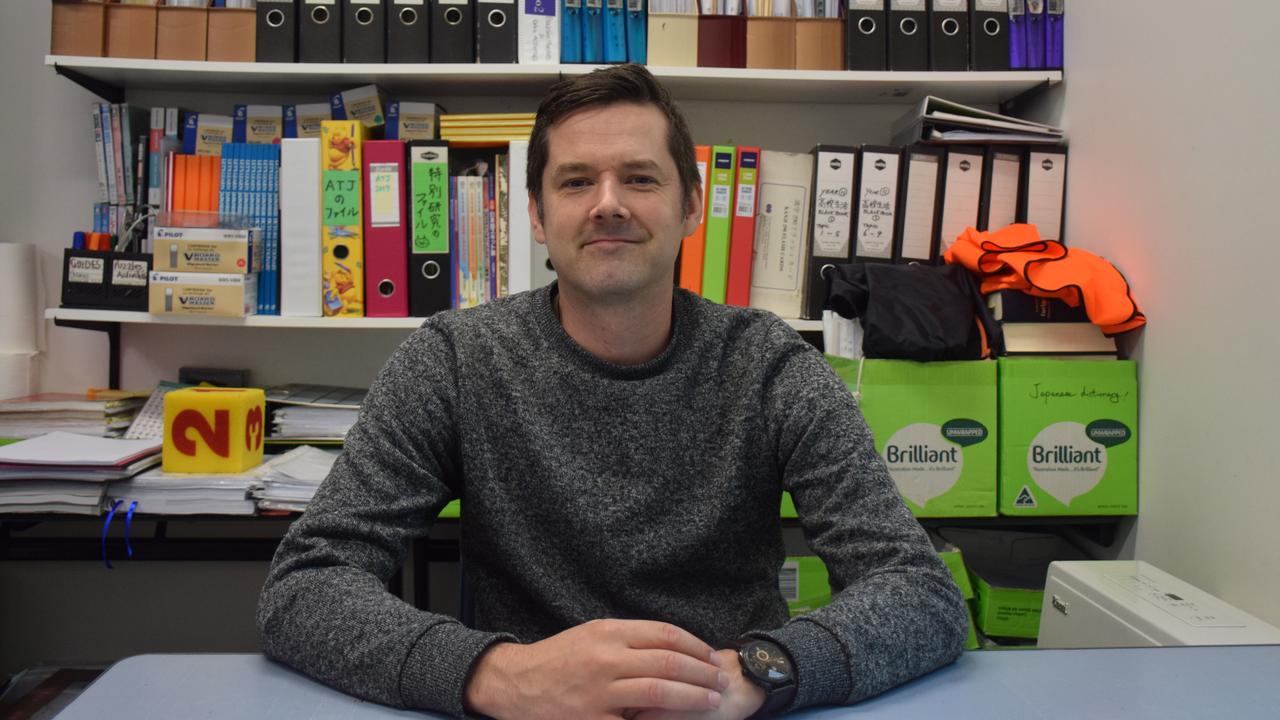
Murray, 38, of the Mornington Peninsula, in Victoria, has written a book, a nonfiction work simply titled The School.
He wrote it to share the stories about the “troubled, brilliant, funny, passionate, struggling’’ students he has taught and who, he says, have inspired him to be a better teacher.
He also hopes it will highlight teacher frustrations of the current “data-obsessed” system and what can be done to improve it.
Murray has been a teacher for about 11 years, and sets his book over the course of one year in the classroom.
It’s the same high school that he attended as a student. Although the book is a true story and the narrative takes place over the course of a single year, identities have been changed and some characters are composites.
In reality, the timeline is more fluid with student stories picked from many different years.
Murray spent time interviewing several of the central characters – students Wambui, Kelvin, Charlie and Claire – who are now aged in their early to mid 20s.
He was still in contact with these students after they left school and sent them drafts of the book as it progressed.
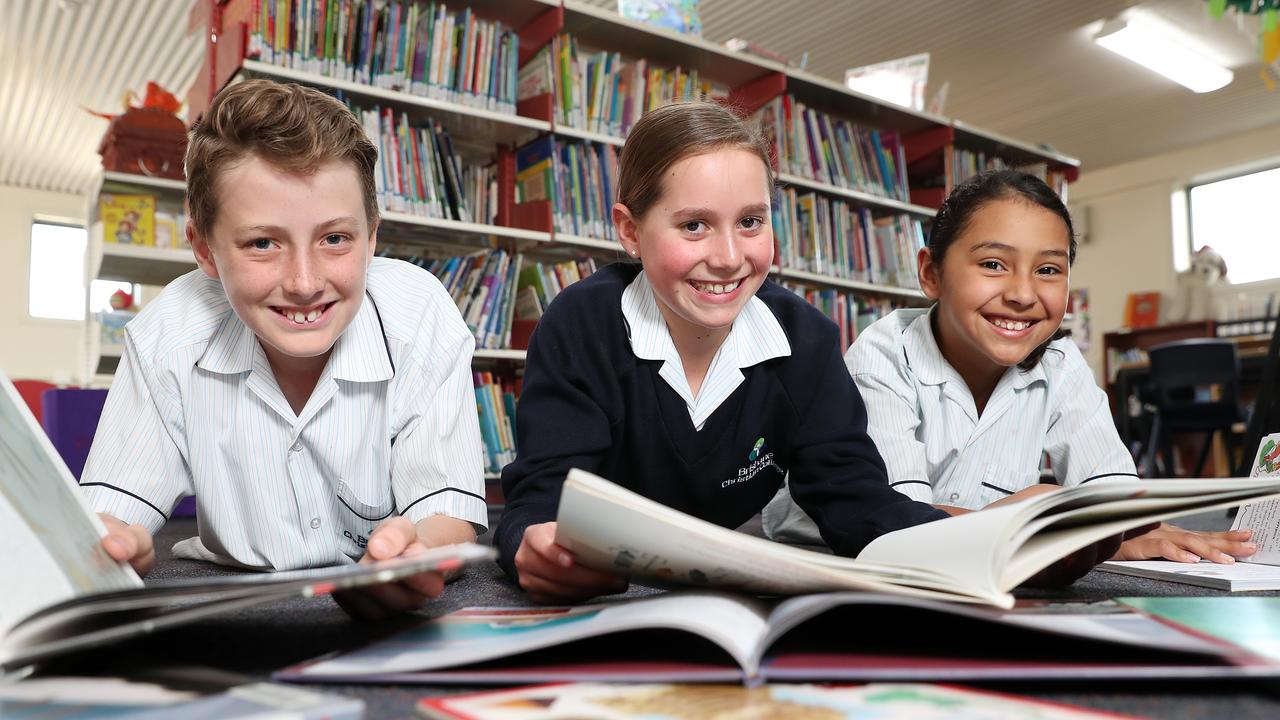
He wrote the book over the course of 2020 while he was working full time (and sometimes remotely due to COVID).
“I wrote the book retrospectively because I didn’t want to be writing about anyone who was still a student now,” Murray says.
“I cast my mind back to students I had met, experiences I have had, and I reached out to many of those students. They all wanted to be involved and they were all actively involved with the writing of the book. I only had my perspective from teaching them but this also gave me their perspective and so I could construct a narrative as true as possible to their experience.”
Murray says the current educational focus on data is an issue already commonly talked about in teacher staffrooms across the country.
“We have become so obsessed with data and numbers,’’ he says.
“Data is important to measure learning but the pendulum has swung so far in the direction of data that there is a risk of the humanity of the students becoming invisible.
“It really wasn’t that long ago that it was accepted practice for teachers to strike students with canes.
“We need to be asking ourselves which of today’s educational practices will future generations look back on with a similar kind of dismay.
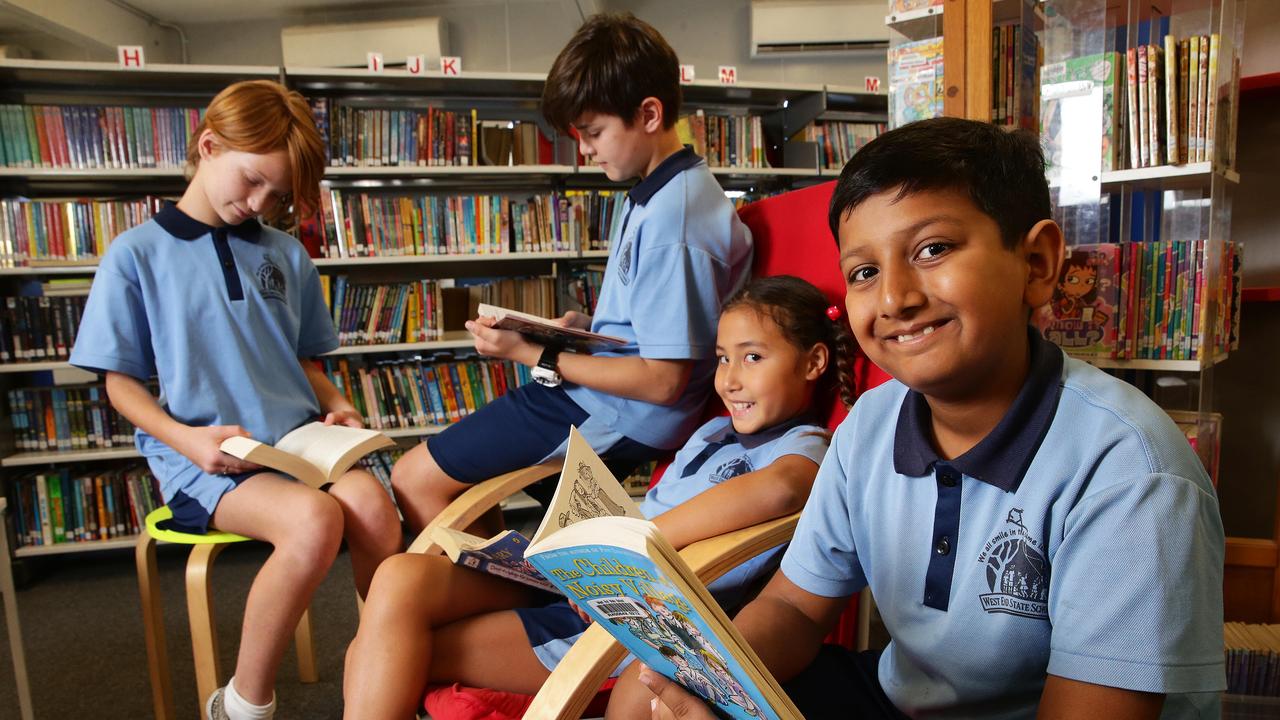
“They are there, we are just blind to them because they have been so normalised. For instance, the obsession and fixation with standardised testing and ATAR scores, NAPLAN and tertiary institution selection processes.”
He says the current system is all about the “expediency of the tertiary institution selection processes”.
This shifts the focus for many students from “the joy and passion and inspiration of learning to the pure extrinsic motivation of the numbers they are going to get”.
This, in turn, creates high levels of student stress, anxiety, and competitiveness.
“In ATAR, the R stands for rank, so everyone is ranked against one another. It immediately creates a culture of competitiveness,” Murray says. “It’s an immense amount of pressure. What kind of a culture have we created?
“The big conversation we need to have is, ‘What do we actually want Year 12 to be?’ Is it purely about helping universities decide who gets into what course? If we also want to create happy, healthy, well-rounded, decent young people, perhaps we need to change that focus.
“We need to shift the focus from the data back to the human being and there is an increasing number of teachers who feel this way.”
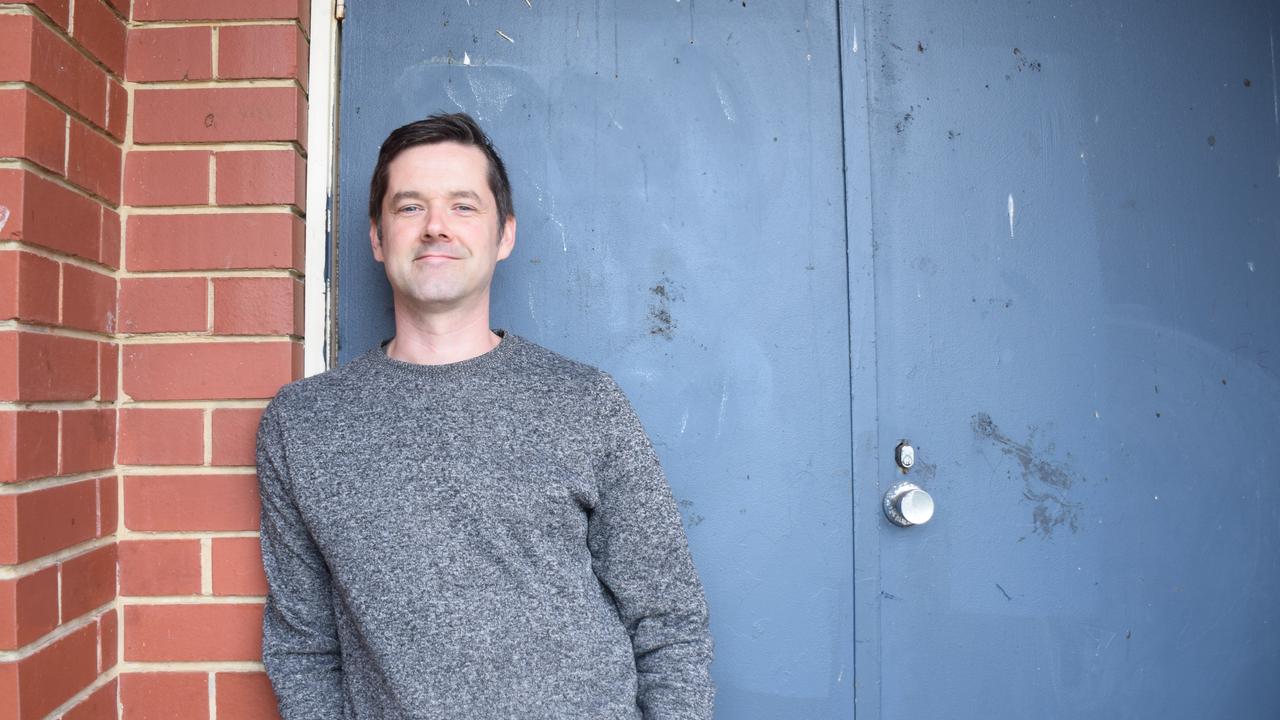
Murray grew up in a loving family with an older brother, Tim, 39, an economist, and a younger sister, Rachel, 34, a police dispatcher.
His father had a variety of jobs including driving a garbage truck with various periods of unemployment. His mum mostly stayed at home but also worked a number of retail jobs.
The family experienced some financial hardship and Murray remembers a year when the kids got Christmas gifts from the Salvation Army.
“Although we grew up in a household where there wasn’t a lot of money, there was wealth in terms of love and connection and support and safety,” he says.
“Mum was a quintessential loving, nurturing mother. Dad religiously took us to the library and I have fond memories of that. For someone who was uneducated, he was a reader.”
Murray attended high school (that he keeps anonymous because it’s the setting of his book) as a “meek, scrawny, bookish” teenager.
Disadvantage, he writes, was “written into the very timber of the walls”, and when he started teaching there, about half of the school’s families received some sort of government financial support.
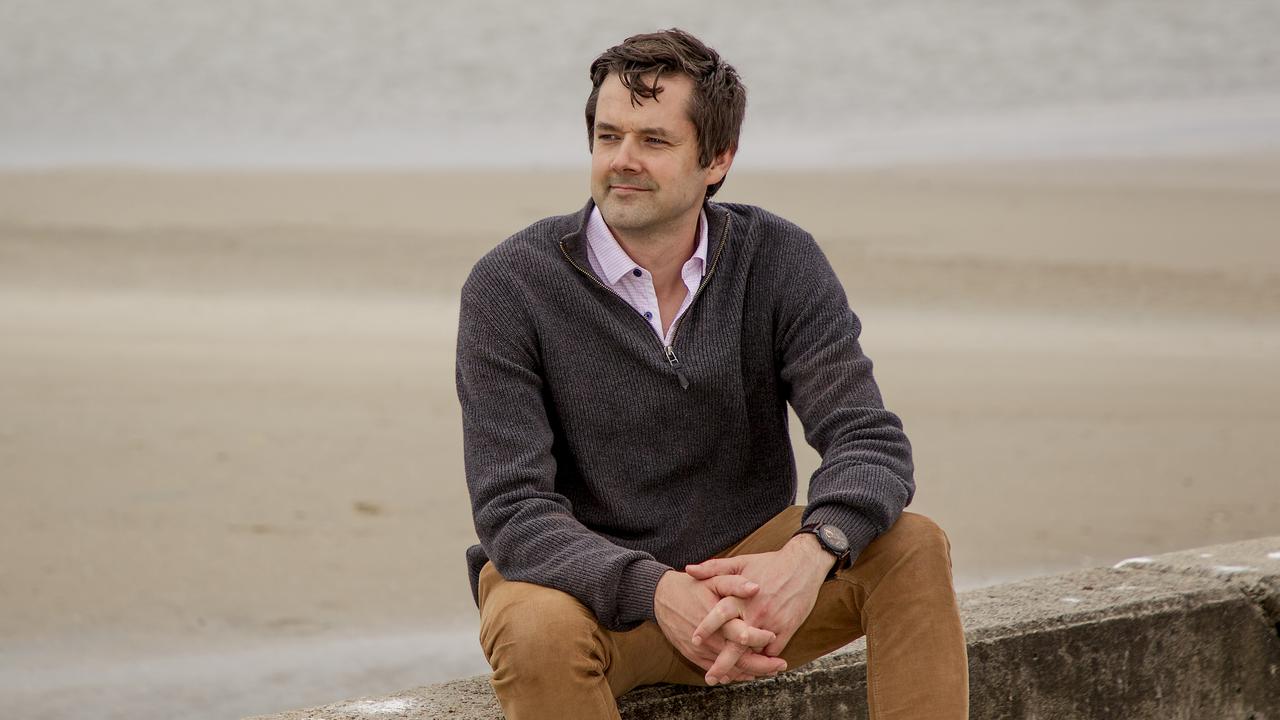
He always wanted to be a writer and looked up to authors such as Stephen King, Paul Jennings and RL Stine.
The School is his third book, following his first The Drowned Man in 2016, a true story of life, death and murder on HMAS Australia, and Venom in 2017, the search for Australia’s deadliest snake.
Murray has a wife, Greta, 31, who is also a high school teacher, and the couple are expecting their first baby in June.
“I’ve always written so, in some ways, it was always inevitable that I would write about teaching,’’ he says.
“My main reason is that I wanted to share some of the amazing stories about the young people I’ve met. The vast bulk of the book is about them and their stories.”
Murray also incorporates some of his own experiences of attending the school including his interactions with a particularly menacing student.
He writes: “Schools can be places of fear. It can hang in the classrooms and the yards, at the bus stops and in the throng of assemblies. As a teacher, I try to remember that.”
His own schoolyard experiences, freshened perhaps by writing this book, have given him empathy for his students and that, he says, is a key quality in any teacher.
“The most important thing in any teacher is empathy,’’ he says.
“At university, you develop a teacher’s philosophy and mine was that teaching was a career of the heart and mind in equal measure. I’ve learnt that it’s far more about the heart than the mind. You don’t teach subjects, you teach children.
“The important thing about empathy is that it allows you to identify hardship and show the students that you do care.”
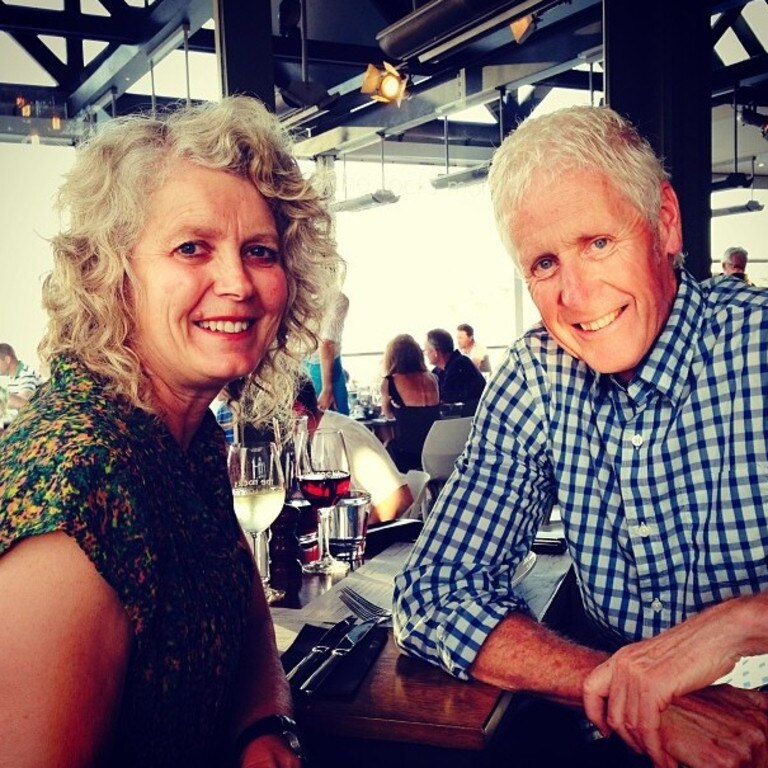
Murray is all too aware how much influence and inspiration a good teacher can provide.
He writes about a man called Liam Davison who taught Murray in a TAFE creative writing course. Davison, an award-winning Australian author, was one of the 283 passengers and 15 crew killed, including his wife Frankie, on the Malaysia Airlines Flight 17 passenger jet that was shot down over eastern Ukraine in 2014.
Murray credits Davidson with setting him on the path to becoming a successful writer.
“Liam was there at the precise right time in my life and I still think about the influence that he had,’’ he says. “When I finished Year 12, I was really directionless and, in retrospect, had depression and anxiety and I was struggling.
“I enrolled myself in a creative writing course at TAFE (over 12 months) that Liam was running. He was an amazing, inspiring teacher who listened to me and gave me positive reinforcement about my writing.
“He had a big impact on me and it was a real turning point for me. He inspired me at a time when I really needed it.
“I think about him often when I am teaching and the students who may need someone to listen and to care about them.”
Murray hopes his book will spark an awarenessthat the system can be improved while also revealing what lasting impact teachers can have.
“Teaching should be valued and appreciated … it’s a profession young people should strive for,” he says.
“That is another thing we need to look at – how to keep good teachers in the profession. We could do more to support young teachers.”
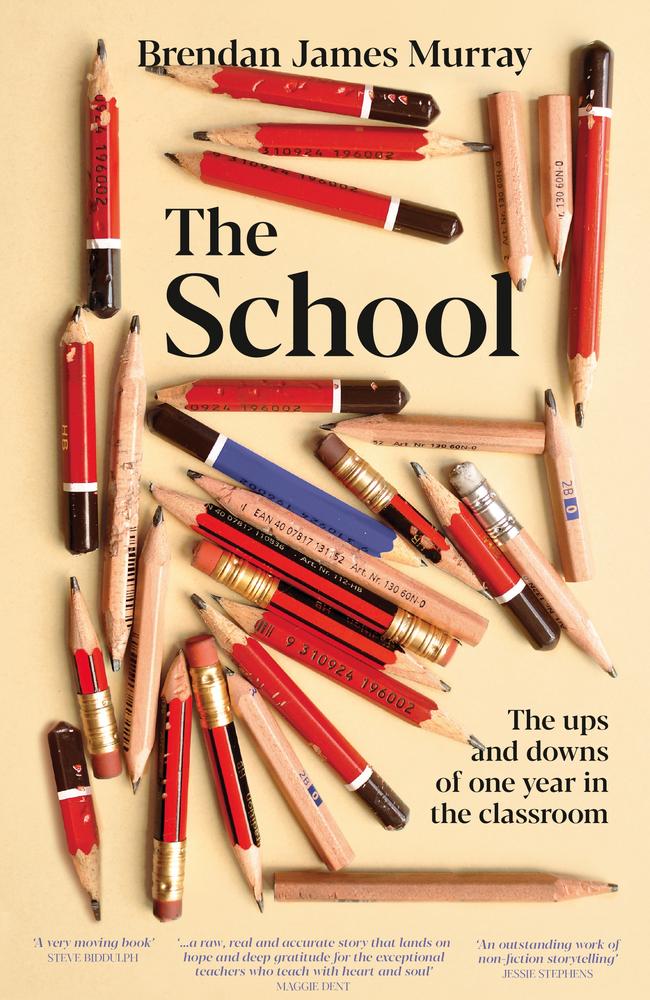
But, overall, he believes writing this book has made him a better teacher who is more empathetic and conscious of his students as “complete human beings”. It is, he says, the “best thing I’ve done as a teacher”.
“I had my perspective as a teacher but I learnt the perspective from these students too,” he says.
“It’s heightened my awareness of all the other stuff that is going on in their lives and how that affects their ability to learn.
“There’s a temptation now to look at the current generation of kids as entitled, lazy brats. There’s a lot of that discourse out there.
“But I want people to look at young people and realise they are more complex than those superficial representations.
“There are amazing young people who have really inspired me. They have taught me things about what it means to be a good human being.”
The School by Brendan James Murray, Pan Macmillan Australia, $35.





